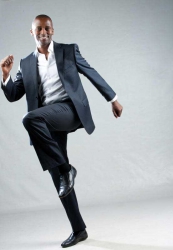×
The Standard e-Paper
Kenya’s Boldest Voice

NAIROBI, KENYA: To be the son of a living legend can make or break a man. To then follow closely in those footsteps and still find a unique and successful path is a rare achievement.
But that’s what Martin Keino, the son of Kipchoge Keino whose historic Olympic gold in 1968 set the standard for Kenyan runners, did. He found a way to become his own man while walking the path his father first did.